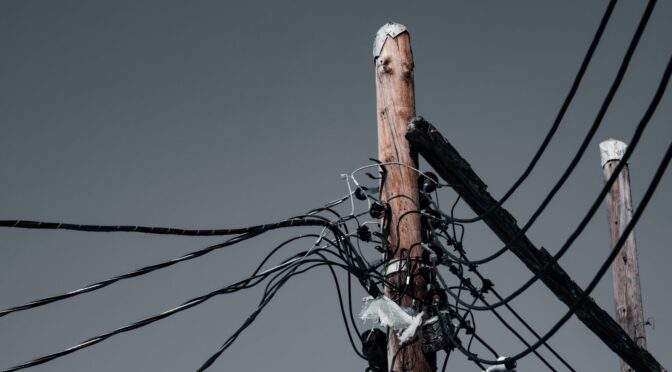Podcast: Play in new window | Download
Subscribe: Apple Podcasts | Email | TuneIn | | More
This morning, I had an enlightening discussion with Tammy Gooding on BBC Radio Hereford and Worcester regarding the ongoing broadband infrastructure enhancements, particularly in light of the Copper Switch-off as announced by Openreach. This move is all about transitioning from the traditional copper wire systems to a more robust and faster digital infrastructure, aiming to future-proof our towns and villages.
However, not everyone seems to be on board with this tech transition, as exemplified by the recent uproar in the picturesque Worcestershire village of Broadway. The crux of the matter unfurled as broadband poles started sprouting up, much to the dismay of the local populace. It seems Full Fibre, the provider spearheading this initiative, hit a nerve when their wooden poles, standing tall at up to 11 meters, started altering the village skyline.
The discontent among the residents morphed into a full-blown protest, with nearly 80 individuals rallying to halt the erection of these broadband poles in Avrill Close. The agitation escalated when a 75-year-old villager, David Owen, took a stance quite literally by spending more than four hours in one of the lorries brought in by the contractors.
This brings us to the question – is the infrastructural overhaul a necessary leap towards a digital future or an imposition disregarding the public sentiment? I tend to lean towards the necessity of upgrading our digital infrastructure, especially when the world is rapidly shifting towards a more connected existence. The Copper Switch off, as discussed on Openreach’s blog post, is a significant stride towards ensuring that the UK’s telecommunications infrastructure is not left in the digital dust.
The saga in Broadway sheds light on the teething issues that such infrastructural transitions entail. On one side, we have Full Fibre asserting their commitment to addressing concerns and emphasizing the critical nature of their work in upgrading the UK’s digital skeleton. On the flip side, the residents feel slighted, their concerns seemingly brushed under the rug, as they see these poles as nothing more than “ugly eyesores” marring their beautiful village.
Lisa Kelly, a villager, encapsulated the general sentiment by stating that they already have satisfactory broadband speeds and do not see the need for these poles. The word “disenfranchised” was used, painting a picture of a community feeling left out of a decision that directly impacts them.
The episode also invited the presence of West Mercia Police officers to ensure the situation remained under control, illustrating the extent of discord between the advancement of digital infrastructure and public approval.
These infrastructural enhancements are a double-edged sword. They promise a digital leap but at the cost of unsettling the communal harmony, at least temporarily. The Broadway scenario is a microcosm of the broader dialogue between technological advancement and community consent.
The future is exciting, but the path there should be paved with understanding and cooperation.
Like this:
Like Loading...







